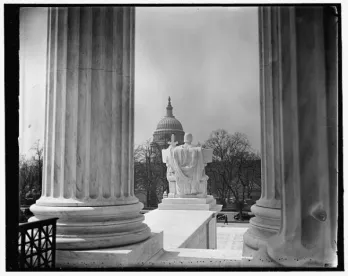On August 31, 2012, the Supreme Court granted certiorari in a case that could determine whether plaintiffs can purposefully limit the amount in controversy in order to avoid federal jurisdiction under CAFA - Class Action Fairness Act.
In Knowles v. Standard Fire Ins. Co., No. 4:11-cv-04044 2011 U.S. Dist. Lexis (W. D. Ark, Dec. 2, 2011) the plaintiff filed a class action lawsuit alleging breach of contract based upon the defendant’s alleged underpayment of claims made on its homeowners policies. The defendant removed the case pursuant to CAFA. The defendant alleged that the plaintiff had pled around CAFA by: (1) artificially limiting the class to just two years when the governing statute of limitations for the claim was five years; and (2) signing a stipulation which provided that neither Plaintiff's nor any individual Class Member's claim was equal to or greater than $75,000, inclusive of costs and attorneys fees, individually or on behalf of any Class Member, and that the total aggregate damages of the Plaintiff and all Class Members, inclusive of costs and attorneys' fees, was less than $5 million, and that the Plaintiff and Class would seek to recover total aggregate damages of less than $5 million.
Following Eighth Circuit precedent, the district observed that the removing party bears the burden of establishing CAFA’s amount in controversy by a preponderance of the evidence, which is more than mere speculation or conjecture. Once the removing party has met this burden, the party seeking remand must establish to a legal certainty that the amount in controversy is below CAFA’s statutory requirement. The district court addressed whether a binding stipulation made in good faith and signed by the plaintiff was sufficient to meet the legal certainty standard.
The defendant offered two arguments against the sufficiency of the plaintiff’s stipulation. First, the defendant argued that the stipulation merely said that the plaintiff would “not seek" damages in excess of $5 million in the aggregate, but not that he would “not accept” damages above CAFA’s jurisdictional threshold. The defendant argued that the stipulation, therefore, was not sufficiently binding. Second, the defendant asserted that in the absence of a corresponding signed stipulation from plaintiff’s counsel agreeing to limit the attorneys’ fees award, the plaintiff’s stipulation was inadequate. The district court rejected both arguments, finding the plaintiff’s stipulation to be sufficiently binding, noting that the stipulation included the phrase "inclusive of costs and attorneys' fees."
The defendant also argued that the plaintiff could not in good faith limit the possible recovery of absent class members’ to a two-year period, when the claim was governed by a five year statute of limitations. The court rejected this argument as well, stating that the absent class members always could opt out.
On January 4, 2012, the Eighth Circuit denied the defendant’s petition for permission to file an interlocutory appeal, and the defendant then filed a petition for writ of certiorari on May 30, 2012.



 />i
/>i

